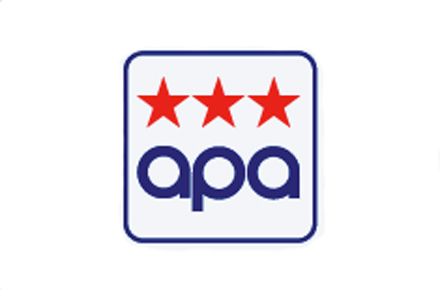The Montreal-based Automobile Protection Association (APA), long a thorn in the side of the auto industry in Canada, has released its Annual Review of the Auto Industry, expressing dismay over the drop in standards for new vehicle advertising.
There is some good news. APA Director, George Iny, says that, “Despite all the media attention over safety recalls, overall quality and the value propositions of new and used vehicles offered in 2010 are good.”
APA says 2010 is a transition year for the industry. “The carmakers are racing to introduce new, friendlier, sport utility vehicles built on lighter car platforms that will wreak less damage on the vehicles they hit in the event of a collision. There are some innovative smaller vehicles like the Kia Soul and Nissan Cube, with more to come shortly, like the Ford Fiesta and Mazda2, but it will be another year or two before the fuel saving technologies required to meet more stringent U.S. fuel consumption standards make their way to the market.”
Advertising standards
The APA expressed dismay, however, over the drop in standards for new vehicle advertising. Chrysler, it says, is now pushing very long 84 and 96 month loans which promise low payments, but will leave consumers owing thousands if they try to sell the car to pay off the loan early.
Also more prevalent in this year’s new car ads are bi-weekly and even weekly payments. “Consumers are used to budgeting with monthly payments,” says Iny. “Weekly payments make the deal look cheaper, when it may not be.”
The APA was also critical of lease deals on luxury cars currently advertised with monthly payments ranging from $350 to $600 in the bold print. To get those monthly payments, says the APA, you may have to add over $5,000 in initial payments, fees and charges buried in the fine print, and the total for up-front money should appear in the bold print next to the monthly payment.
Price advertising by used car dealers in Quebec, on the other hand, is much more transparent, and proves it is possible to advertise with integrity, says the APA.
The American carmakers
According to the APA, Ford is in the best shape among the domestic carmakers, with competitive mid-size cars and SUVs like the Fusion and Edge. Canadian sales are likely to increase with the arrival of the subcompact Fiesta this summer and a new Focus next year.
The reliability of the new Fords has improved incrementally each year since 2007.
GM has some appealing products like the Malibu sedan and Chevrolet Equinox SUV, but quality issues linger with steering, front brake and electronic components on several GM models that can drive up maintenance and repair costs.
Chrysler is in a holding pattern this year, with a lacklustre line of small vehicles and not much new to offer for another year or two.
The European carmakers
Canada is a big exeption to the weak market for luxury vehicles in most western economies, the APA says. BMW, Mercedes-Benz and Audi have been breaking records thanks to high sales of entry-level sedans like the BMW 3-series and Audi A4, and compact SUVs like the Mercedes GLK.
The German luxury automakers now offer four-wheel drive almost exclusively on their Canadian market sedans and are attracting customers from other luxury brands like Acura, Volvo and Jaguar.
The APA says the competition is so intense that it’s possible to lease an entry-level car from a German automaker for similar or less money than a loaded Japanese intermediate.
Cadillac will have to wait for a return to leasing in Canada to be truly competitive.
In the affordable segments, Volkswagen is now off APA’s list of vehicles to avoid. The APA says VW’s reliability has improved to average or better for several models, and that most VW products rate at the top of their class for performance, comfort and safety.
The Asian carmakers
Hyundai and Kia experienced explosive growth in the last year, as consumers looked more closely for value in their purchases. All the new Hyundai and Kia products offer superior value and several redesigned Hyundai models have generated fewer complaints recently than their Japanese rivals, the APA says.
Hyundai recently declared its intention to post best-in-class fuel economy in every segment it competes. That’s no small feat as it will mean making vehicles that use less fuel than Honda and Toyota, and will certainly require the automaker to introduce a hybrid.
Kia offers innovative designs with democratic pricing; APA particularly likes the Rondo which is rated best in its class, and the Soul, which is a unique vehicle
And then there’s Toyota
Toyota has warranted a lot of media attention recently because of the controversy surrounding reports of unintended acceleration with its vehicles.
The APA believes the two most likely causes for unintended acceleration are:
1) Interference between the pedal and floormat, because of an incompatibility between the Toyota accelerator pedal on certain vehicles and “pantsaver” style mats installed by owners in winter, and;
2) Pedal misapplication.
For other incidents, the cause is undetermined and will likely remain so, due to a lack of investigation when first reported by consumers, in many cases attributable to Toyota and its dealers.
The APA continues to recommend most Toyota models. The automaker’s quality has slipped a bit recently, it says, and launches of some redesigned models like the 2007 Camry and 2009 Corolla were not troublefree. But Iny says Toyotas continue to offer superior reliability and low operating costs. Resale values have slipped a bit but continue to be better than average.
However, the APA says Toyota’s conduct during the sudden acceleration investigation has exposed weaknesses in the way Canada investigates safety defects.
The APA is recommending the following changes:
• Dealers should be required to log complaints about potential safety defects reported by their customers and file them with Transport Canada. Toyota dealers made early reports of unintended acceleration “disappear” by not recording them, or telling owners their cars were OK without investigating further.
• Automakers must have field engineers on staff or on contract to investigate reports of safety defects. Until recently, Toyota had no engineers available in Canada to investigate field reports of sudden acceleration, even when incidents resulted in a collision. Iny calls this situation “irresponsible” and a possible violation of the Motor Vehicle Safety Act, which makes it the carmaker’s duty to ensure the safety of its products.
• Canadian law requires automakers to notify Transport Canada when they become aware of a safety defect. The APA says the language in the Motor Vehicle Safety Act may need to be reviewed to require cooperation with the government during an investigation. Toyota appears to have concealed from both American and Canadian regulators the fact that several models were equipped with onboard event data recorders that record data like accelerator and brake pedal position in the seconds before an impact. Had Toyota or the government been able to download data after the early reports of collisions, it would have helped identify the cause of complaints, and possibly rule out electronic interference issues
• Transport Canada needs more resources for its small defect investigations department. This includes adding a couple of engineers with a specialty in vehicle electronics, and ensuring it has the bench strength to handle the recall investigations that go critical every four or five years and result in a large influx of reports.
According to Iny, Toyota’s response in the sudden acceleration file has cast a shadow that is unwarranted over recalls from other carmakers. Recent statements by its Canadian executives have been light on details about the changes Toyota needs to make at the corporate and dealership level to be more responsive to safety complaints.
Toyota’s insistence that there are only five complaints for “sticky” accelerators – while true – is self-serving and lacking in candor, given the much higher number of reports of unintended acceleration for other causes including undetermined causes, Iny says.
He adds that a comprehensive technical solution to address the unintended acceleration issue needs to take into account the potential for pedal misapplication, because the gas and brake pedals are located close together and outside of the field of view of the driver; Canadian owners are also more than likely to install rubber floormats in winter, so designers of the floor and pedals need to take this into consideration for Candian-market vehicles.
The APA predicts that now that Toyota is sharing its event data retrieval equipment with government investigators in the U.S. and Canada, it will likely take another six months to a year to definitively identify the causes of unintended acceleration.
The APA’s new-vehicle ratings are available at its website, www.apa.ca.












